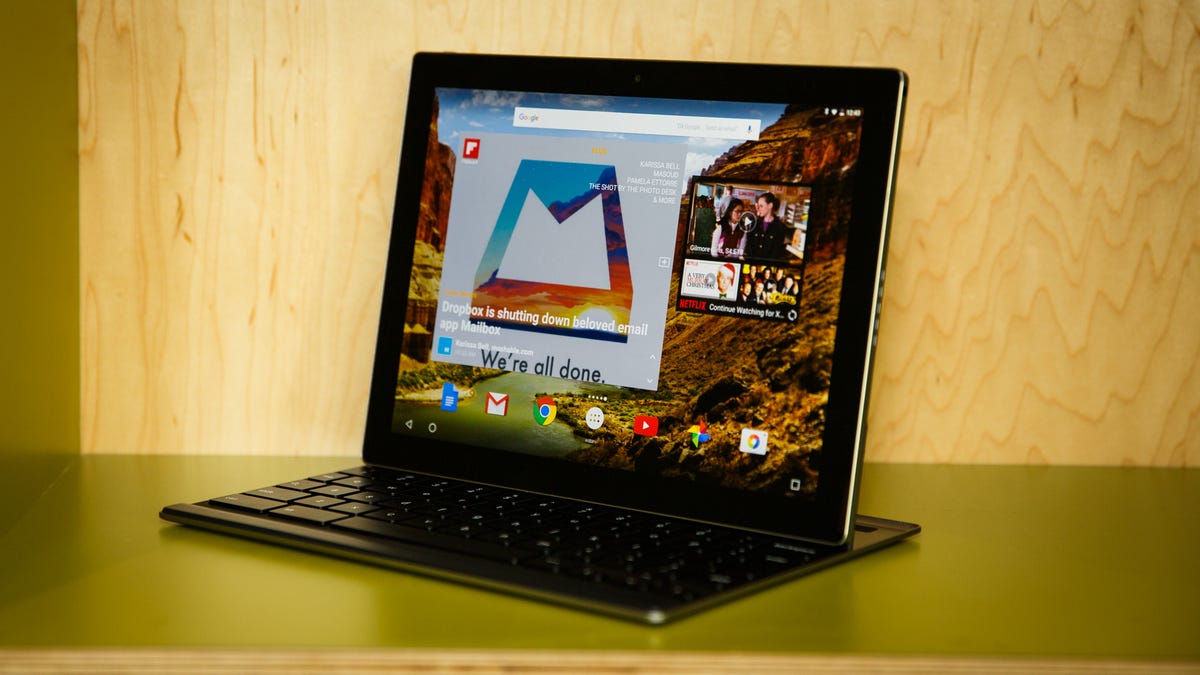Google has retired the Pixel C tablet
It'll still get some form of Android updates, though.
Remember the Google Pixel C? We called it "the best Android tablet money can buy" when the $500 slate arrived in 2015.
Two years later, Google has officially confirmed that it's stopped selling the Pixel C -- officially retiring it in favor of the new $1,000 Pixelbook hybrid laptop the company released earlier this year.
Here's Google's statement:
"As is common when a device has been out for a few years, we're now retiring Pixel C and it is no longer available for sale. However, we are committed to updating and supporting it, including the recent update to Android 8.0, so customers can continue to get the best out of their device. Our newly launched Google Pixelbook combines the best parts of a laptop and a tablet for those looking for a versatile device."
(Android Police noticed that the Pixel C had quietly disappeared from Google's online store earlier today.)
The Pixel C was always a bit of an odd duck in Google's hardware lineup, particularly when it was first announced in 2015. Back then, "Pixel" was Google's brand for its flagship Chrome OS devices, not Android ones -- and Android has never been particularly well suited to tablets then or since. But as Ron Amadeo at Ars Technica argued, the Pixel C was likely never meant to be have been an Android tablet at all.
It arrived at a time when Google was reportedly very actively mulling how to combine its mobile Android and desktop-style Chrome OS operating systems into a single cohesive whole. Instead, the company eventually simply brought lots of Android apps to its Chromebooks. If you buy a Chromebook today, they can run millions of the very same apps you'd use on an Android phone.


